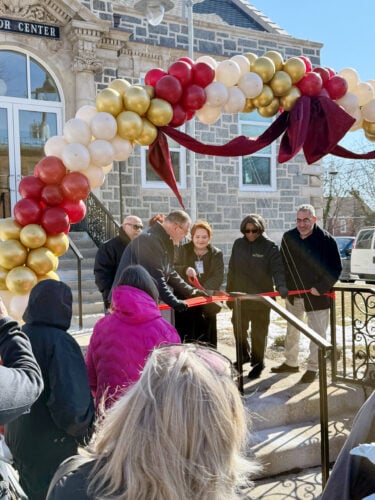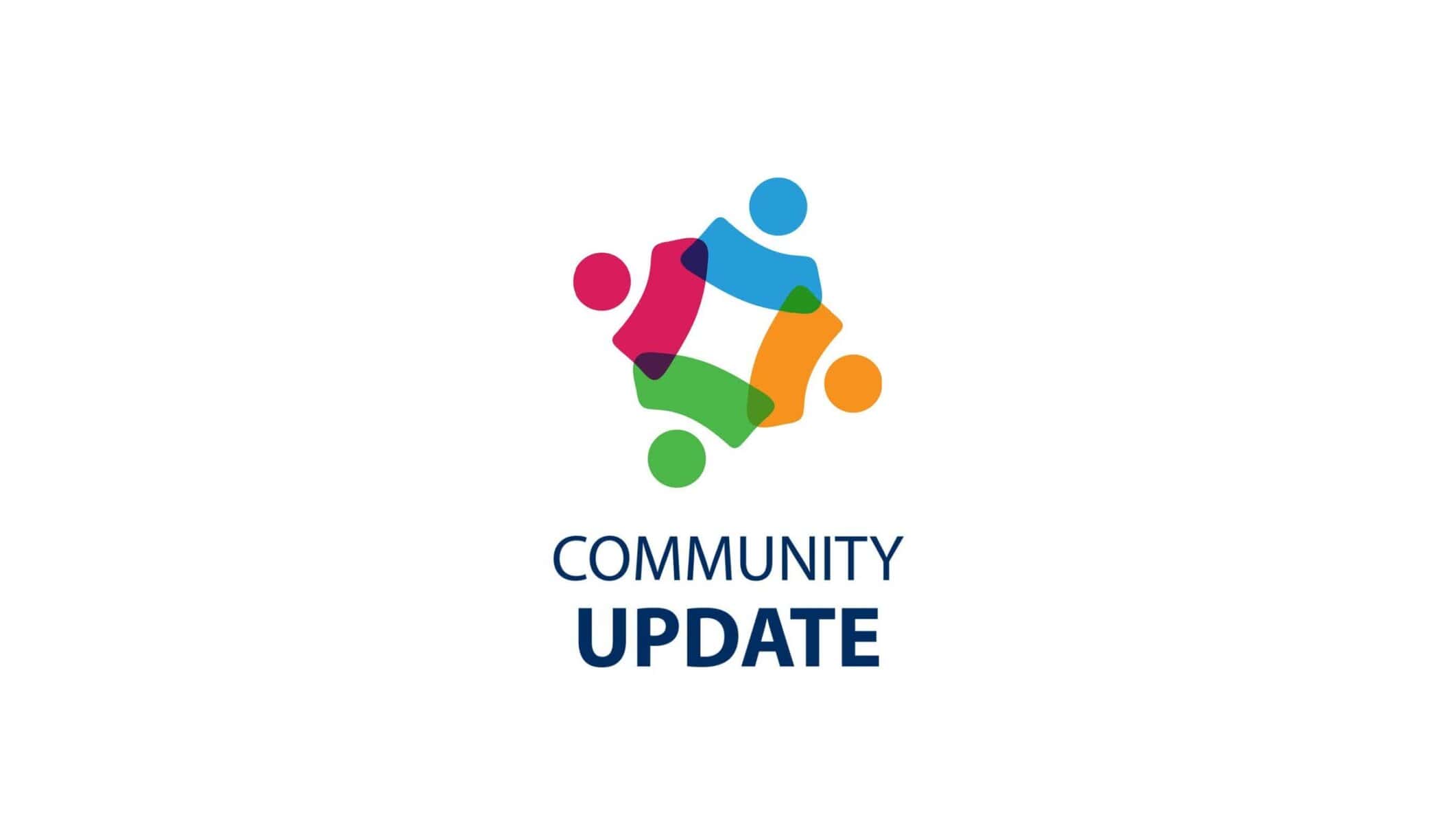‘Meet’ the Author
One Book, One College author visit will be virtual this year, set for November 3.

 Any place you stand, any piece of ground, something happened. It’s fascinating to think about,” says Lisa Wingate, a #1 New York Times bestselling author. “I grew up in the time when we were sitting at the knee of the old folks. I would stay at my grandparents’ farm. The old folks would tell stories about when they built the barn, when they got the first tractor.”
Any place you stand, any piece of ground, something happened. It’s fascinating to think about,” says Lisa Wingate, a #1 New York Times bestselling author. “I grew up in the time when we were sitting at the knee of the old folks. I would stay at my grandparents’ farm. The old folks would tell stories about when they built the barn, when they got the first tractor.”
Wingate lived in a more suburban area at the time. “I wanted to know what my connection was to these farm places,” she adds. “I liked imagining in my mind what they used to be.”
She hopes the Rowan College of South Jersey (RCSJ) students who read her book catch that inspiration of knowing more about history.
“I think we ignore history at our peril,” Wingate says. “It has lessons to teach us. The only way to progress past something is to face it.”
Her newest novel, The Book of Lost Friends, was selected for this year’s One Book One College (OBOC) choice, an annual program that has students and community members reading the same book. A highlight is to have the author visit, but due to COVID, Wingate will be a virtual speaker on November 3. The event is free and an easily accessible opportunity for readers to hear directly from the author.
Set after the Civil War, her novel has actual excerpts from the Lost Friends column of the Southwestern newspaper as former slaves sought to find their family members.
 “The Lost Friends database was a big project to bring all the ads together,” Wingate explains. “Those lost voices travel out on the air now online, in a medium they couldn’t have imagined.”
“The Lost Friends database was a big project to bring all the ads together,” Wingate explains. “Those lost voices travel out on the air now online, in a medium they couldn’t have imagined.”
Wingate used the real database but created characters, and one of them is in search of her family. The book is also shaped by her reading hundreds of firsthand accounts from the WPA Slave Narratives collection. Wingate was impacted by reading “how a parent became free and walked all over the country to gather up her children. I want to put these voices out there to dispel the myth of benevolent relationships [in slavery]. We’ve made it prettier than it was,” she says.
Every other chapter is set 100 years later in more modern-day 1987. This switch in history might help the reader ask, as Wingate states, “how is that past affecting us today and we don’t even realize it? We’re a product of pieces of history. It also gives some break points between incredibly traumatic events.”
Sarah Layton, an RCSJ student, writes, “I became hooked on it because I felt that I could relate to the character, Benny Silva. Benny starts the book off with her first day teaching and being unable to control the students in her classroom. Being a new dance teacher myself who is just about the same height as her students, I found it hard to keep my student’s attention and I worried about their parents’ respect. Throughout the story we find Benny searching for different ways to gain her student’s interest in school. As a teacher, it’s easy to care about the children even when they give you a difficult time.”
Layton also liked reading about Hannie, whose story is just after the Civil War.
“I find myself intrigued by this mystery, and I’m eager to learn more,” Layton says. “Another part of Hannie’s story is the loss of her family. I believe it is important to record our own history because memories can be forgotten for several reasons. Records of history can help us learn from the past and prevent future mistakes.”
 Layton also liked the imagery. “Benny finds herself in an old house during a search for books, and with Lisa Wingate’s description of the property, I felt like I was right there with Benny,” she notes.
Layton also liked the imagery. “Benny finds herself in an old house during a search for books, and with Lisa Wingate’s description of the property, I felt like I was right there with Benny,” she notes.
That engagement with a book is just what they are seeking when they make their selection, says Judith Cirucci, RCSJ senior instructional designer and the OBOC committee chair. The program is in its 18th year.
“We want the book to be narrative in form—it has to be story-like, and with issues that our campus and our community would find compelling,” Cirucci explains.
Each OBOC selection is then part of the programming in both the developmental reading program and in the in-person freshman seminar classes. They also encourage other faculty in related disciplines to include the book in the curriculum. “For this book,” Cirucci notes, “that’s history, sociology and psychology.”
The college also promotes the book in the campus and county library.
“Since we choose the book for the academic year, we also have a spring event,” Cirucci says. “Usually a panel discussion with faculty specialists in the fields the book touches upon. If there is a film rendition, sometimes we do a free viewing of that.”
 Cirucci is a big fan of The Book of Lost Friends. “The characterization is wonderful—to walk in the shoes of the character.” She also related to the teacher character as an educator. She appreciated the authentic ads from the Lost Friends column. “When you bring together fact and fiction,” she states, “it’s exceptionally powerful.” She’s grateful for the support of the program: “Cumberland Campus Educational Foundation has been instrumental in sponsoring the program and enabling it to continue to reach our students and community.”
Cirucci is a big fan of The Book of Lost Friends. “The characterization is wonderful—to walk in the shoes of the character.” She also related to the teacher character as an educator. She appreciated the authentic ads from the Lost Friends column. “When you bring together fact and fiction,” she states, “it’s exceptionally powerful.” She’s grateful for the support of the program: “Cumberland Campus Educational Foundation has been instrumental in sponsoring the program and enabling it to continue to reach our students and community.”
Bookclub member Eileen Fischer says her group has read the OBOC selection for many years. “Personally I love when I read books to then hear from the authors. I want to know how did they get these thoughts in their heads?” She referenced hearing Christina Baker Kline talking about her book Orphan Train and how Kline was inspired. “I loved that book. I loved it 10 times more after hearing her. Her story has stuck with me.”
Of The Book of Lost Friends, Fischer says, “it was my kind of book. Those two stories going back and forth and then at the end they come together. I found it easy to read, certainly easy to follow.” Her book club, which meets monthly, “has dessert and coffee after we’ve read the book and seen the author. I’ve already signed up.”
To sign up for Lisa Wingate’s webinar on November 3 at 7 p.m., rcsj.edu/onebook, then RSVP To Attend. (It is free, but limited to the first 500.)









